This Is Why Your Cat's Nose Is Swollen (+ What Should You Do)
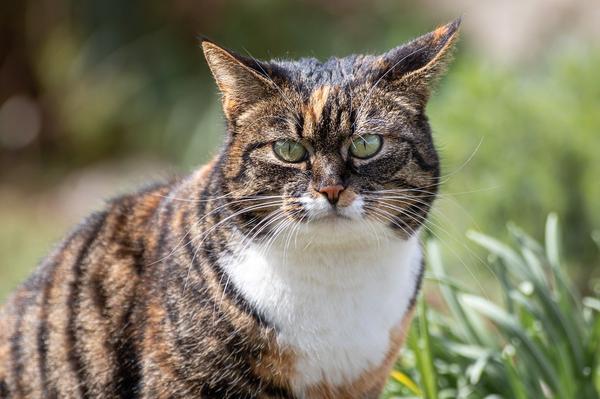
Just imagine:
You come home after a long day, ready to cuddle up with your fur baby.
But oh no! 😢
Your precious cat's nose looks like it's been hit by a wrecking ball.
Panic sets in, doesn't it?
You start frantically googling "why is my cat's nose swollen?" and praying for a quick solution.
Well, fret not, my friend.
Keep reading and I'll reveal all the answers you need to nurse your kitty back to health.
Causes of Cat Swollen Nose
A cat's swollen nose can have various causes, so you ought to figure out the root problem and treat it properly.
Let me tell you about some less common causes you should be aware of:
- Autoimmune disorders such as eosinophilic granuloma complex or pemphigus complex can make a cat's nose swell up.
- Swollen nose in cats can also be caused by sinusitis, which is when the lining of the sinuses becomes inflamed.
- If a cat has inflammation or damage to the nasal mucous membrane from upper respiratory tract disorders, that can contribute to a swollen nose too.
- Usually, sudden rhinitis or sinusitis in cats is due to viral infections, but fungal inflammation in the nasal and sinus area can also be responsible.
- There are other things that can also lead to a swollen nose in cats, like trauma, infections, allergic reactions, cysts, salivary mucocele, hematomas, abscesses, tumors, bacterial infections, and dental abscesses.
- If a firm and rounded swelling appears over the bridge of a cat's nose, it could be a feline cutaneous plasmacytic reaction pattern indicating certain conditions.
It’s crucial to identify the specific cause in order to treat it effectively.
If you notice your cat's nose is swollen, consult a veterinarian to determine the underlying cause and find the right course of action.
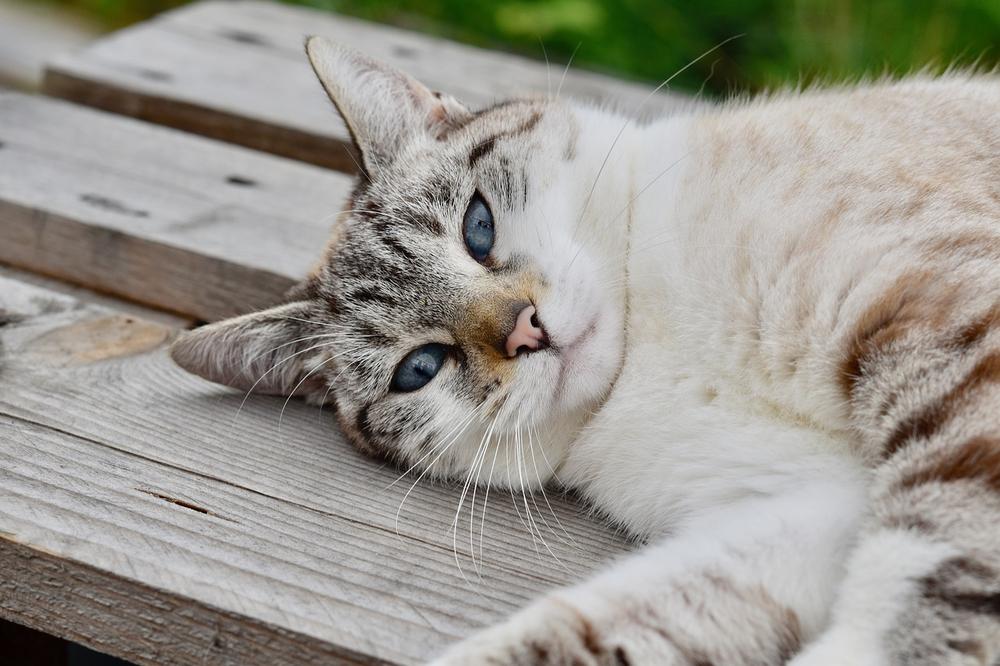
Spotting and addressing the issue early on can prevent further complications and ensure our furry friends get the care they need.
And if you're wondering why your cat's nose can sometimes become dry, I personally have written a handy guide titled Why Does My Cat Have a Dry Nose.
In my blog post, I explore the possible reasons behind this issue and provide helpful advice on how to alleviate it.
So, if you're concerned about your furry friend, I highly recommend checking out my article for some valuable insights.
Common Allergens That Cause Cat Swollen Nose
Common Allergens that Cause Cat Swollen Nose
If you're a cat owner, you know how important it is to keep an eye on your furry friend's health. And one common issue that cat owners often encounter is a swollen nose.
But do you know what could be causing it?
Let me tell you about some common allergens that can trigger this unfortunate condition.
Allergic Rhinitis and Sinusitis: The Culprits Behind the Swollen Nose
Allergies can affect your cat at any time of the year, as well as during specific seasons.
While we often think of pollen and dust mites as typical culprits, there are other factors to consider too!
For example, certain types of cat litter or cleaning products used around your house can also trigger allergic rhinitis in sensitive cats.
So you may want to reconsider your choices when it comes to these items.
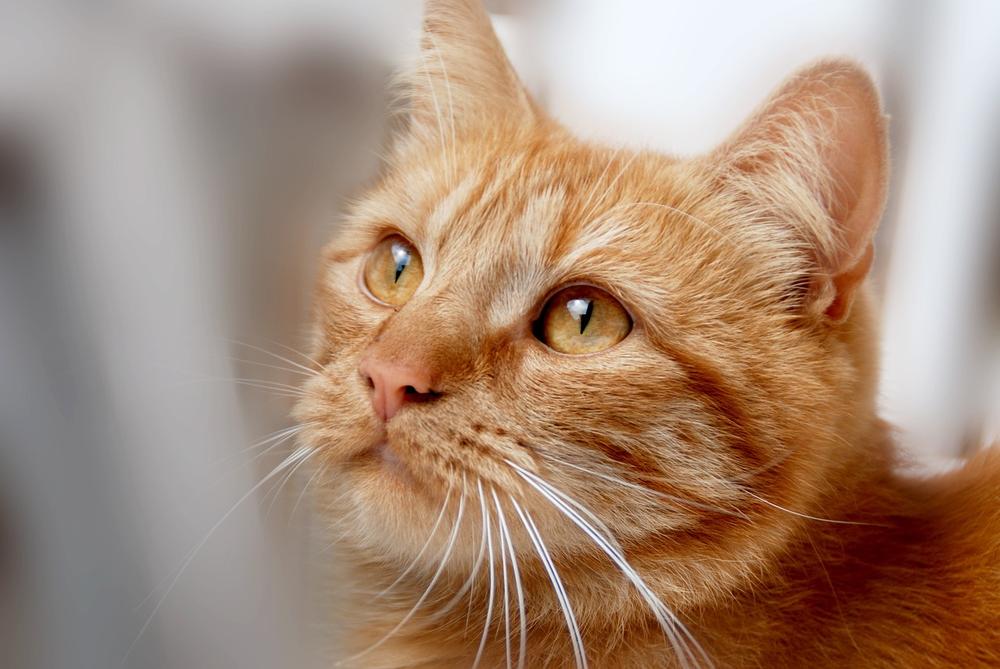
What's more, respiratory diseases caused by feline viral rhinotracheitis and feline calicivirus can lead to a swollen nose in your cat.
These viruses can easily affect your cat through direct contact with infected animals or contaminated objects.
And let's not forget about food, medications, household chemicals, insect bites, and stings.
Any of these substances can potentially trigger allergies in your cat, leading to a swollen nose.
Effective Treatments for Fungal Rhinosinusitis
If you suspect that your cat's swollen nose is due to fungal rhinosinusitis, don't fret!
This condition can be effectively treated with antifungal therapy. Following the prescribed treatment plan and working closely with your veterinarian will help get your cat back to its healthy self.
Sometimes, nodular angiocentric infiltrates may be observed in the deep dermis and subcutis, which is a clue that your cat may have swollen nose from allergies. Please bear in mind that detecting calicivirus antigen within skin lesions through immunohistochemical staining is not always possible.
So, if you notice your cat's nose is swollen, make sure to pay attention to allergens in their environment and seek veterinary advice to ensure a rapid recovery.
How to Identify Rhinitis in Cats
When it comes to spotting rhinitis in cats, pay attention to how your furry friend behaves. If they're constantly pawing at their face or rubbing against furniture, it might mean they are uncomfortable due to nasal congestion from rhinitis.
Basically, rhinitis is just inflammation of the nose's mucous membranes.
It can happen alongside sinusitis, which is also called rhinosinusitis. So what signs should you be on the lookout for?
Well, keep an eye out for things like nasal discharge, sneezing, snoring, breathing with their mouth open, struggling to breathe, tears, and conjunctivitis. In more chronic cases, your cat may sneeze frequently or every now and then.
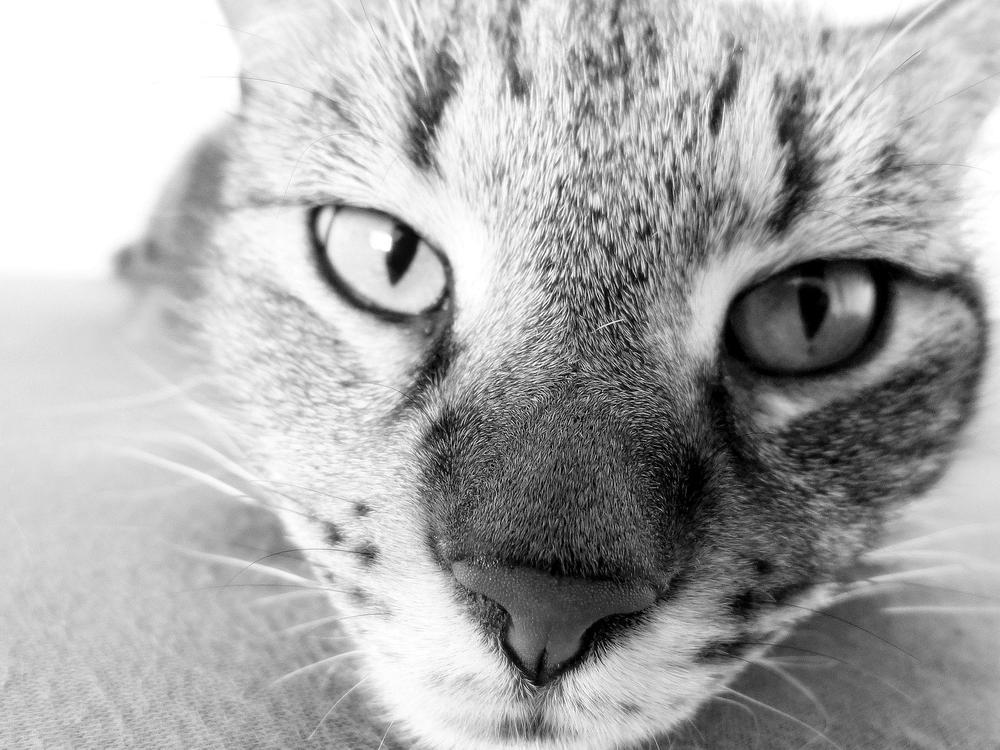
To get a proper diagnosis, your vet will consider your cat's history, do a physical exam, take x-rays and CT scans, perform rhinoscopy, nasal biopsy, and rule out other potential causes.
Now, let me tell you about some other common signs to watch out for. Your cat might have red and runny eyes, cough, ulcers in the mouth or nose, sniffles, fever, or hoarseness.
If you look closely at their face, you might even notice a firm swelling on the bridge of their nose. And sometimes, there may be an increase in serum protein levels, which is called mild hypergammaglobulinaemia.
Lastly, in order to properly diagnose the condition, your vet might need to conduct a skin biopsy. 😺
But what can you do to help your furry friend if their nose is swollen?
Well, I have some advice on how to alleviate symptoms and address the underlying cause of a cat's swollen nose...
Treating Cat Swollen Nose at Home
When your cat's nose is swollen, you've got a few options to help them out.
- Using special nasal sprays for cats can moisturize their nose and reduce inflammation, which will make them feel better.
- This treatment focuses on relieving symptoms and figuring out what caused the swelling in the first place.
- If it's a bacterial infection, antibiotics might be prescribed, but they won't work on viruses.
- For allergies, antihistamines can do the trick.
- Fixing any dental issues or wounds can also bring down the swelling in their face.
- Finding and treating lymphoma early is key.
- Nebulizer machines are another way to deliver medication to your cat and ease their discomfort.
- But before you go trying anything on your own, talk to a vet.
- They'll know what's best for your cat, even when things seem really bad.
- And if your furry friend ends up with a swollen nose, don't panic... There are ways to make them feel better from the comfort of home with good care.
But what can you do to prevent your cat's nose from swelling in the first place?
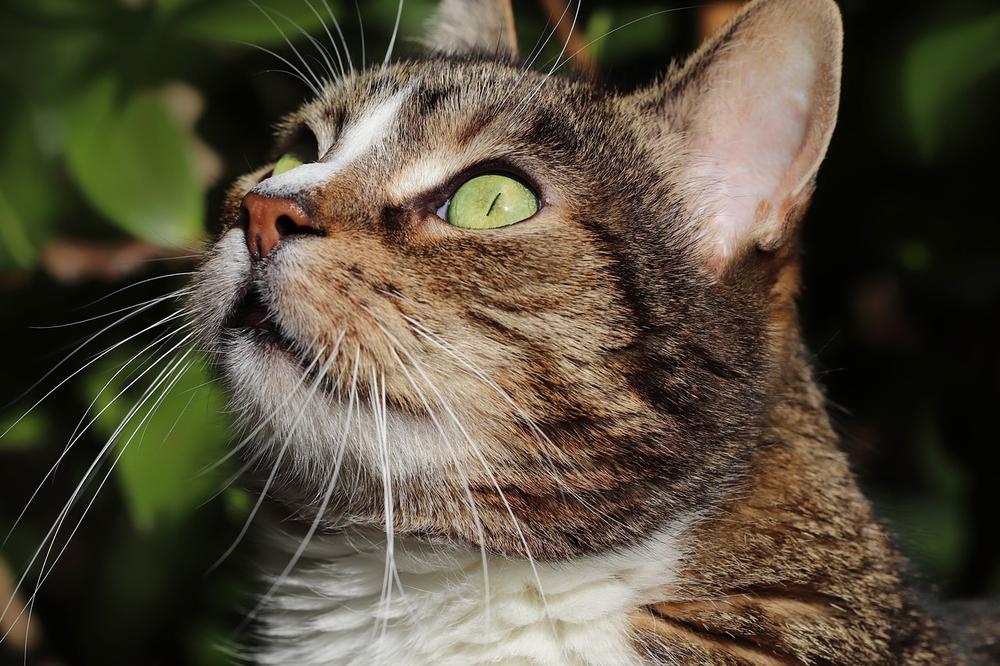
Well, let me share some proactive measures that you can take!
Preventing Rhinitis in Cats
Cleaning your home regularly and managing allergies can prevent allergic reactions that contribute to rhinitis in cats.
Remove potential allergens like pet dander or mold spores. Vaccinate your furry friends to reduce the risk of infections causing rhinitis.
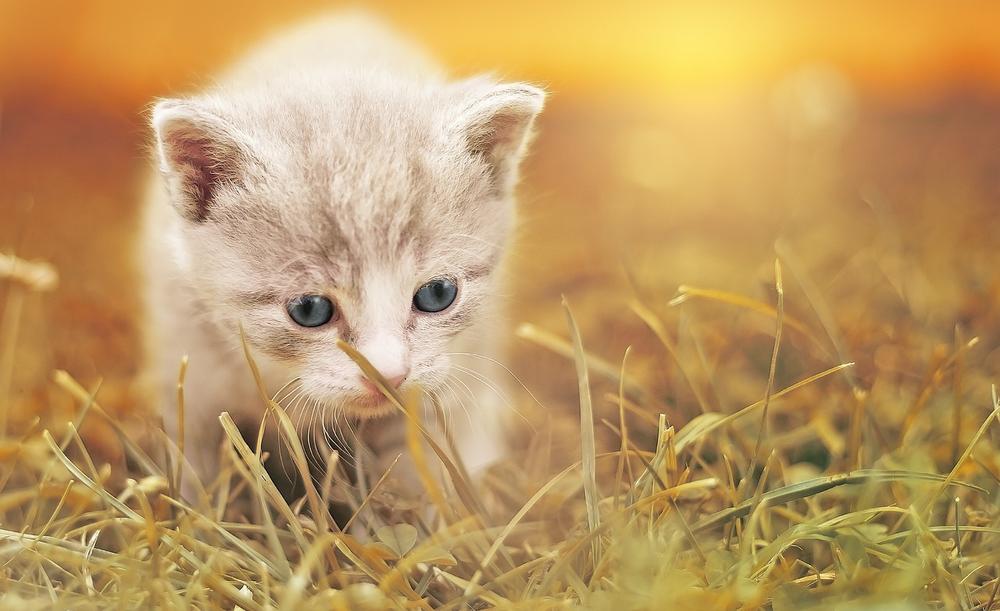
Seek early diagnosis for conditions like lymphoma to prevent facial swelling in cats.
Keep their environment clean, tidy, and free from irritants.
Remember, prevention is key when it comes to keeping your feline friend healthy and happy, so be proactive, stay vigilant, and give them the care they deserve.
When to Seek Veterinary Help for Cat Swollen Nose
If your cat's nose is puffed up, you gotta know when it's time to head to the vet.
Here are some signs that tell you your cat needs immediate attention:
- If their face blows up all of a sudden and they're having trouble breathing or swallowing, it might be an allergic reaction - serious stuff.
- In severe cases of swollen noses in cats, they might need fluids and extra nutrition straight in their veins.
- Not every runny nose calls for a trip to the vet's office. It could just be a normal thing as they clear out their system or a little infection that'll go away on its own.
- But if you see worse signs like extreme eye swelling, greenish goop or blood coming out of their nose, them being super tired and sluggish, high fever, loss of appetite, and struggling to breathe, then yeah, it's time for the vet. 😷
- The vet can't give proper treatment without knowing what's causing it, so they might do tests like analyzing the nasal discharge and checking blood samples.
- A swollen face in your cat could mean something really bad, like cancer or another life-threatening disease - not something you wanna mess around with.
- To rule out any infections, it's good to get your kitty tested for feline immunodeficiency virus.
Listen, pal, better to be safe than sorry when it comes to keeping your furry friend healthy.
Whenever you have even the slightest concern, don't hesitate to reach out to a vet.
But what happens if you ignore the signs and your cat's swollen nose goes untreated?
Well, there are some serious complications that can arise.
Let me tell you about chronic rhinitis in cats and why you have to take action sooner rather than later...
Complications of Untreated Cat Swollen Nose
If you don't address a swollen nose in your cat, it could cause some serious problems. It's important for you to know what these problems are so you can take action and get veterinary help as soon as possible.
Here are some of the complications that can happen if you leave a cat's swollen nose untreated:
- Nasal polyps: If chronic rhinitis isn't treated for a long time, it can lead to nasal polyps. These block airflow through the nose and make it hard for your cat to breathe.
- Bacterial infections: Untreated chronic rhinitis can result in bacterial infections that cause ongoing inflammation in the nose and sinuses. Your cat may also have mucus-like discharge from their nose.
- Fungal rhinitis: Sometimes, a swollen nose in cats caused by fungal rhinitis can create a lump on the nose bridge. This lump can be painful and affect your cat's overall well-being.
- Chronic rhinosinusitis: This condition is tough to manage and rarely curable. If medical treatment doesn't work, surgery may be necessary. But keep in mind, surgery doesn't always give the desired results.
- Serious health issues: You should never ignore facial swelling in cats because it might indicate a serious or life-threatening problem. Cysts, salivary mucoceles, hematomas, and both benign and malignant tumors, including lymphoma (a type of cancer), can all cause facial swelling.
As you can see, if you leave a cat's swollen nose untreated, it can cause various complications that will impact your cat's health and quality of life.
Conclusion
Key Takeaways:
- Sinusitis and upper respiratory tract disorders can cause a swollen cat nose.
- Viral infections and fungal inflammation are common causes.
- Trauma, infections, allergies, cysts, and tumors can also contribute.
- Calicivirus and allergies can trigger respiratory diseases in cats.
- Rhinitis and rhinosinusitis present with symptoms like nasal discharge and sneezing.
- Diagnosis involves physical exams, imaging, and biopsy.
- Home treatment focuses on relieving signs and addressing the cause.
- Vaccines and early diagnosis can help prevent facial swelling in cats.
- Severe cases may require intravenous fluids and immediate veterinary attention.
- Facial swelling could indicate a life-threatening illness or cancer.
And that wraps up today's article.
If you wish to read more of my useful articles, I recommend you check out some of these: Why Does My Cats Poop Smell So Bad, Why Is My Cats Nose Crusty and Black, Why Does My Cat Have a Saggy Belly After Being Spayed, Can Cats Drink Green Tea, and Is Ivy Toxic to Cats
Talk soon,
-Sarah Davis